Living In Merida: How To Live A Greener Life
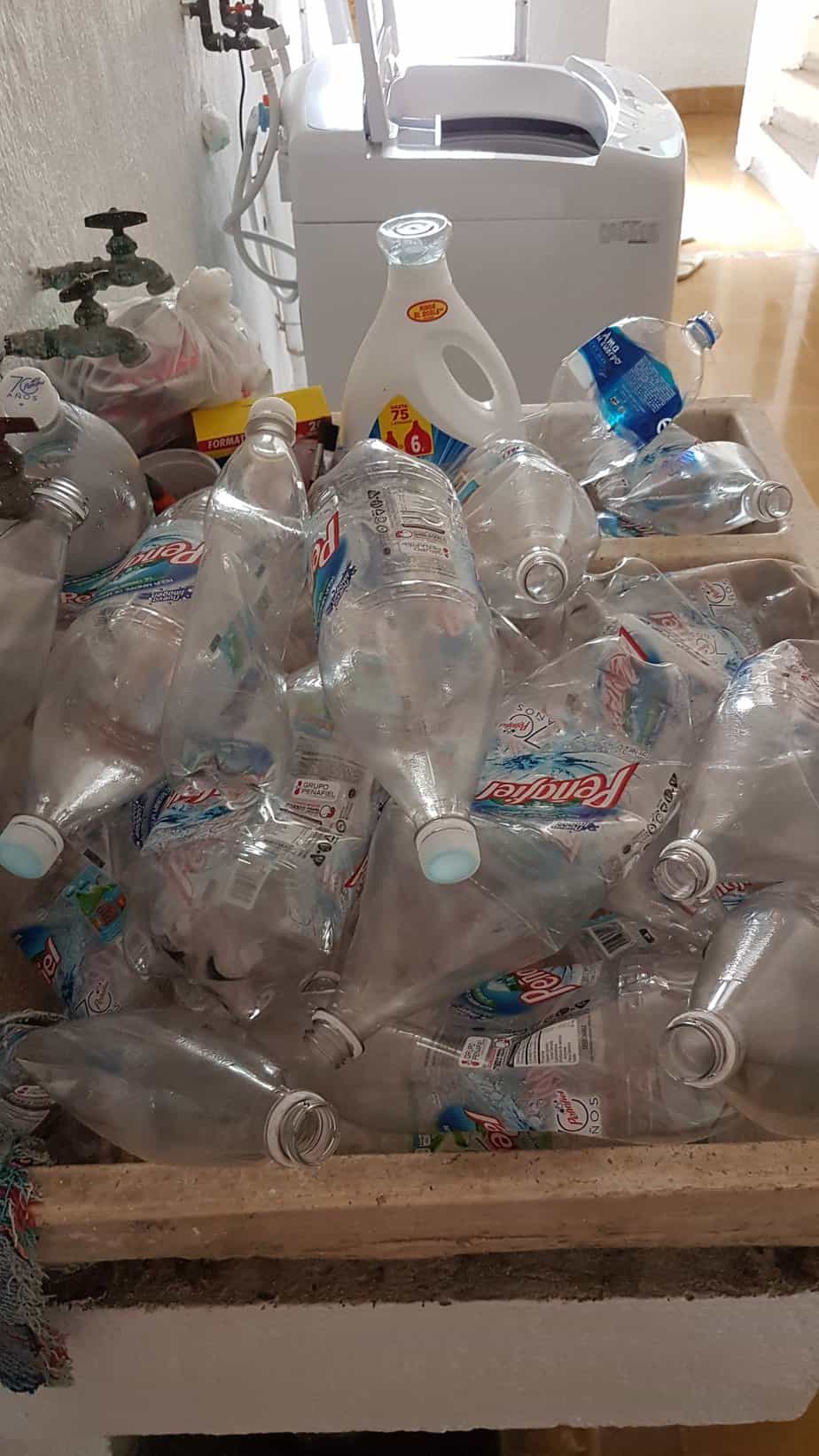
One question that I see come up over and over again in expat groups and chats is, ‘how can we be more environmentally aware in our new lives in Merida? Many of us come from places that have already made recycling an easy part of everyday life, we could walk everywhere and we knew where to shop responsibly and how to buy ethical or organic products. So, if you live in Merida and want to live a greener life, this is the article for you.
Moving to a new city and/or country can mean having to start collecting this knowledge again, from scratch. I know it has for my family. We’re from London and there, we lived in Southwark, an area of London with one of the world’s best recycling plants right on our doorstep. All we had to do was chuck ALL our recycling in one bin and the local council would take care of everything else. Awesome, right? We also had a weekly farmers’ market just down the road from our house, and, because it was London, we almost never used our car.
Cue Merida. Here we have a car that gets used every day, we struggle to know the provenance of the food we’re buying, and recycling, on first glance, doesn’t seem to be a true part of the culture.
BUT…
Dig a little deeper and you find a plethora of options for recycling and living a greener life in this beautiful city. I spoke to a number of residents in order to find out more about what’s going on and how to integrate environmental awareness into your Mexican life.
AND…
Let’s not forget that recycling isn’t what we’re actually aiming for; we’re aiming for a greener, more environmentally friendly life. Recycling is kind of a last resort once we’ve tried reducing waste and reusing things. So while recycling might not be a huge player here, upcycling most certainly is.
I’ve been pleasantly surprised to see quite a lot going on. Our kids’ schools are more environmentally aware than one of our UK schools (the other was a forest preschool so not fair to compare). Families have to provide plates and forks for every child for the regular birthday cakes that wind up at school. It was a clear ‘please don’t send in throw-away plates for every cake). The last school party also instructed everyone to come with their own cup so they didn’t have to throw away a plastic cup every time anyone bought a drink. Outside every classroom is a collection of dustbins to help the kids recycle their waste correctly. Once a week families can drop off their plastic recycling at school and every week there’s ‘Less Waste Thursday’ to encourage families to think about their consumption and habits.
I must also say a big thank you to everyone who helped me on my quest to collate as much information about ethical living in Merida.
Life In Merida: Recycling
Official Recycling Points:
The easiest recycling point for most foreigners in Merida has to be the Slow Food Market on a Saturday morning. This is a local government initiative (follow on Facebook at Merida Sustentable or via their website ).
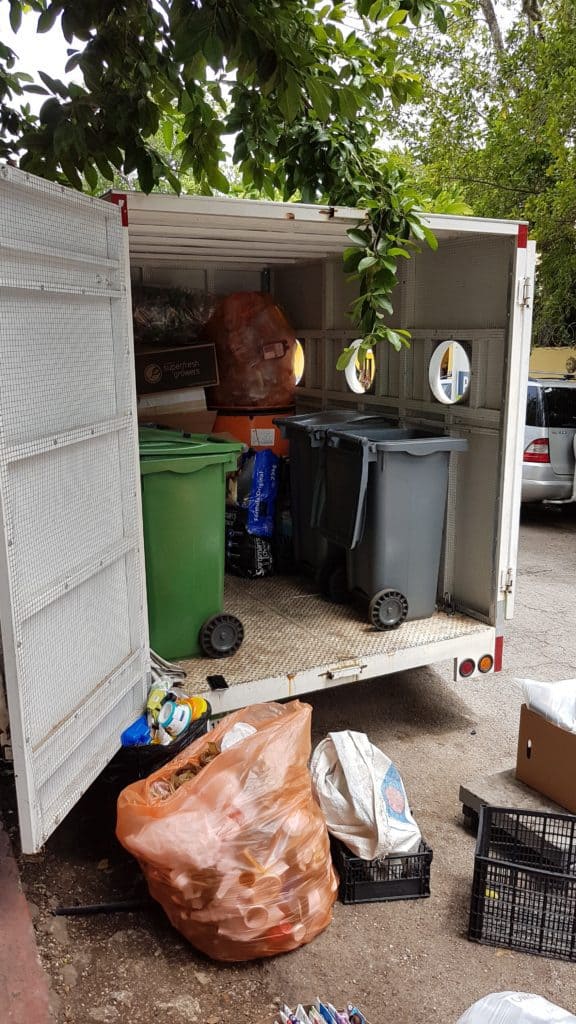
Official city recycling point
However, this is actually a mobile recycling point, provided by the local government. It can also be found in other places across the city on Wednesdays and Fridays. I spoke with staff there and discovered that the locations and timings of the recycling points can change so do check out what’s going on when you need it.
Their recycling points accept:
- Paper and cardboard
- Aluminium cans (ready flattened)
- Tetra Pak (cleaned and flattened)
- Glass (clean and dry)
- PET (1) – generally water bottles. Must have a 01 on them.
- Metal wrappers (I guess this specifically means like chip packets)
- HDPE (2) – generally this is cleaning product bottles. Must have a 2 on them
We were also told that if we leave recycling out on the street in clear bags it’ll be dealt with separately. I think this actually means that the bin-men, or others, take it away and sell it, which is fine with me.
City Dump
You can take recycling to the dump where it is sorted into different materials for reuse.
Plastic bottles can be returned but the financial value is extremely low (around $3 pesos per kilo). You will still find that people will look through your garbage for the plastic bottles so if you are going to just chuck them out, perhaps in a clear plastic bag or a box outside the house to make the lives of those collecting them slightly easier.
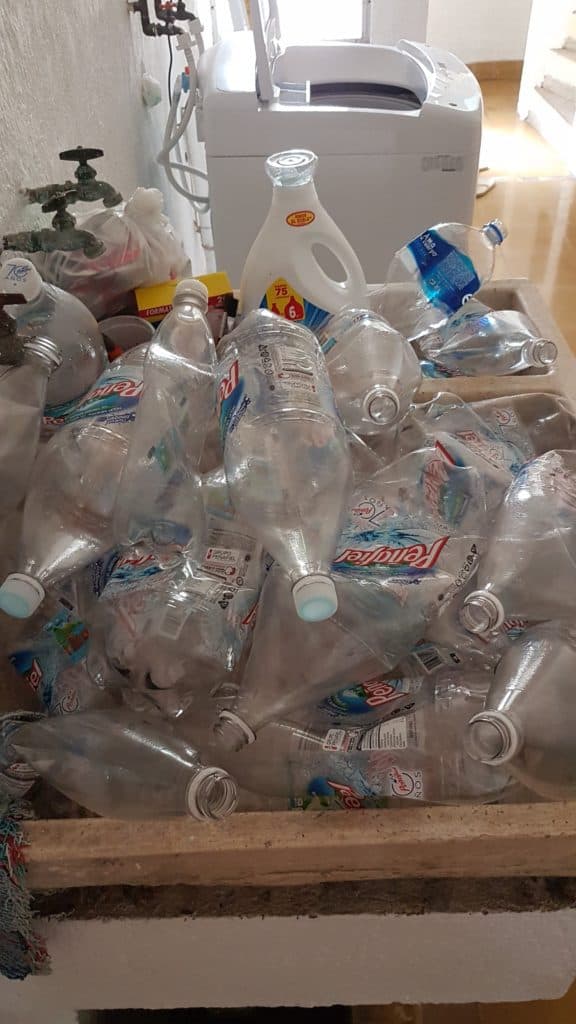
Whoops. This is our biggest failing. I own up to it.
Drink cans can also be returned for money (around $15-$25 pesos per kilo) and the rate is better, enough to make it worthwhile for the collectors. There are also a few (very few) machines for can return around the city. I spotted one in Animaya where every can you post into the returns machine gets you a free ride on the little train. In our house, we save all our cans for our cleaner who has asked if she can have them for returning herself.
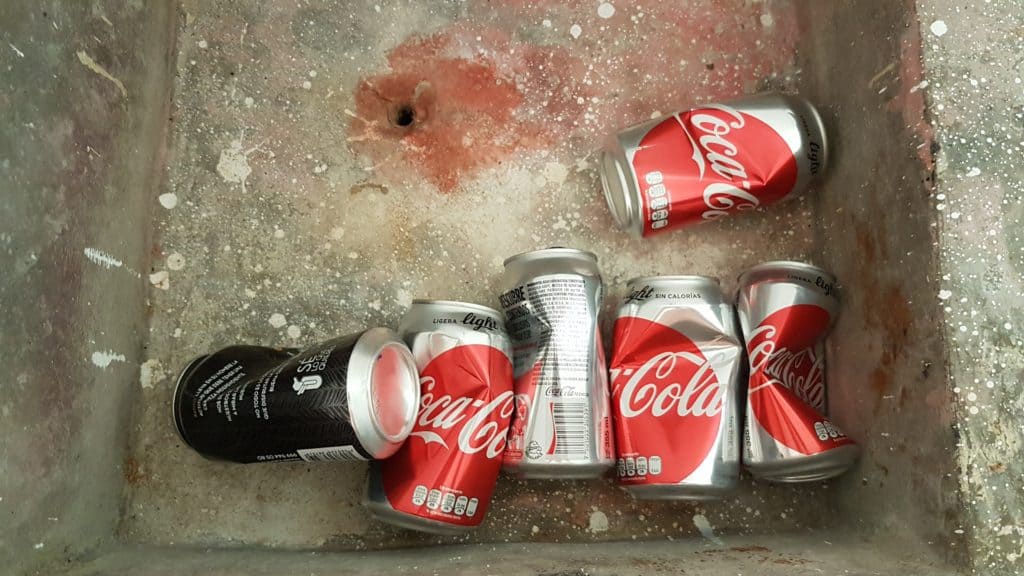
Drink cans for recycling
If you’re looking for health insurance, take a look at Mexico Living for their comprehensive policies. I love them because for every policy purchased they donate to a local charity.
If you have kids in school, or live near a school, it’s worth knowing that schools are all part of a Bepensa scheme whereby they collect plastic for recycling and are rewarded for collecting. We take all our plastic bottles to our school (sadly, we have a sparkling water addiction in our family so we have a lot as we haven’t yet figured out Soda Stream in Merida).
Eco-bricks – one new worldwide initiative is the making of eco-bricks. Basically, you take a plastic bottle and ram every single little piece of non-recyclable plastic you have into the bottle. It needs to be packed solid, we’re not just talking half-hearted packing. I break a serious sweat when I’m using my daughter’s toy broomstick to ram all the plastic in as hard as it can go. It took us over three months to complete our first brick. Punta Verde will accept eco-bricks as will the eco-school in Hunucma.
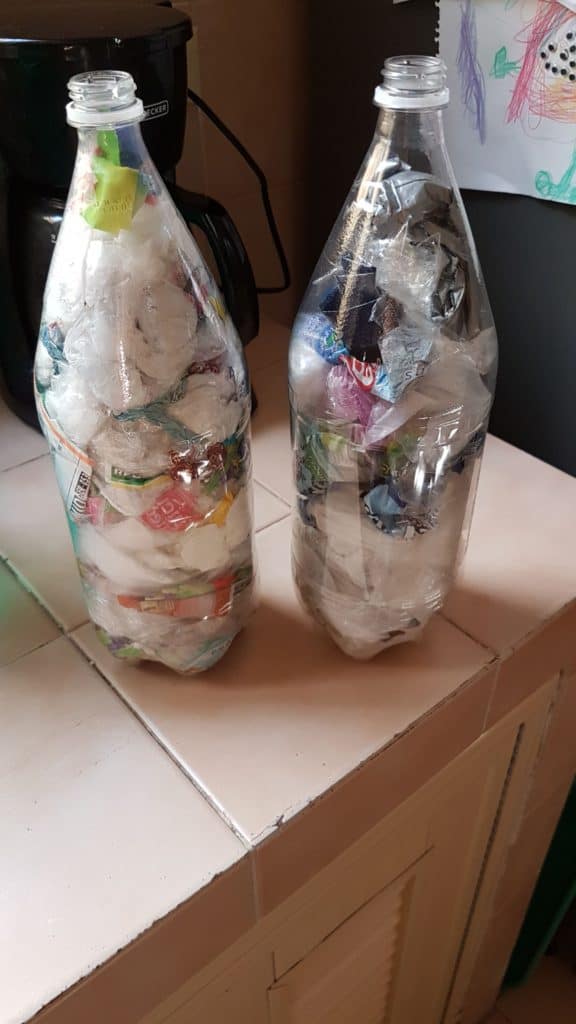
My first two eco-bricks
Life In Merida: Upcycling
Anything that can be reused should be cleaned and either reused within your own home or put outside on the street where someone else will undoubtedly take it to reuse. We use glass jars to store dirty cooking oil, for example, so we don’t have to throw it down the sink or toilet and then block the sewers. Not ideal but better than fatbergs in the sewers.
Anything else that may not be right for you and your family, could still work for others. I recently left an old chopping board and a pair of sandals outside our house: gone in an instant. Or, you could find thrift-stores (second-hand shops for my European readers). Yucatan Outreach has one in Itzimna, for example, and there are local stores around too.
If you have kids then using boxes to arts and crafts is perfect. I just dump boxes under my kids’ art table and within minutes they’ve created something new. I appreciate that won’t work for every kid, especially older ones, but I’m constantly surprised by what my kids make from boxes. Together we made a kitchen for them: in the UK we had an Ikea toy kitchen, here we have one made out of old boxes. Now it’s just an oven but in the beginning, there was also a sink and a microwave. We also have a time machine on one wall and a Teen Titan house, and numerous doll beds. We also use the ridiculous waste that comes with takeaway for art projects or for picnics. Nothing gets chucked.
Many of the ‘green’ stores, like Monique’s Bakery or Ya’axtal, will take back jars and the Slow Food Market sellers also happily take returned packaging.
Plastic Bags: In many countries, plastic bags are now sold rather than given out automatically. In the UK it costs 5p a plastic bag. When I lived in Rwanda in 2005 they banned plastic bags outright (although there was a rumour that this was because the president’s wife owned a paper bag factory rather than for environmental reasons). Here, in Merida, plastic bags are still freely given away everywhere. Take reusable shopping bags with you when you go to the supermarket or the market. All the stores sell them. You will also find reusable fruit and veg bags more and more. I just bought mine recently and am super happy with them and the reaction I’m getting.
We find we do reuse the plastic bags we do get: we store our organic waste in them because we don’t have a garden in which to compost and don’t want our trash bins to stink and then attract animals once the rubbish is put on the street.
In mid-2019 it was announced that there will be a phase-out of plastic bags, plastic packaging and straws in Merida over the following eighteen months. Hurrah!
Restaurants, Straws And Take Away Containers: Restaurants are more and more clued up here too. Many will actively not offer straws (but many still will) and a growing number of takeaway restaurants are recommending you take your own plastic containers or providing biodegradable ones.
Most restaurants and cafes in Merida offer free water, you don’t have to buy bottles of water. Just ask for ‘agua purificada’. I can only think of one place that has told me they aren’t allowed to give free water and actually I’ve discovered that if I send my kids to ask for it they don’t say no!
Hurrah for places like
- Soco who only use biodegradable packaging and won’t supply straws
- Bing Bang Kitchen for delicious Thai food and being eco-conscious in recommending you use your own packaging
- Rincon Vegana (Riot Food) for offering biodegradable packaging
- El Bull-Pen in Chelem for encouraging customers to use their own packaging, for offering biodegradable packaging and more!
- Monique’s Bakery where takeaway isn’t official but if you do get anything to takeaway it’ll be in a jar or wrapped in paper
Because vegan travel isn’t always super easy or straight forward, I wrote an article about my five favourite vegan restaurants in Mérida.
Let’s all support restaurants and cafes offering this service! Do let me know if you know of others.
For a fuller list of shops and restaurants working towards greater sustainability, check out my latest article on sustainable shopping and eating in Merida.
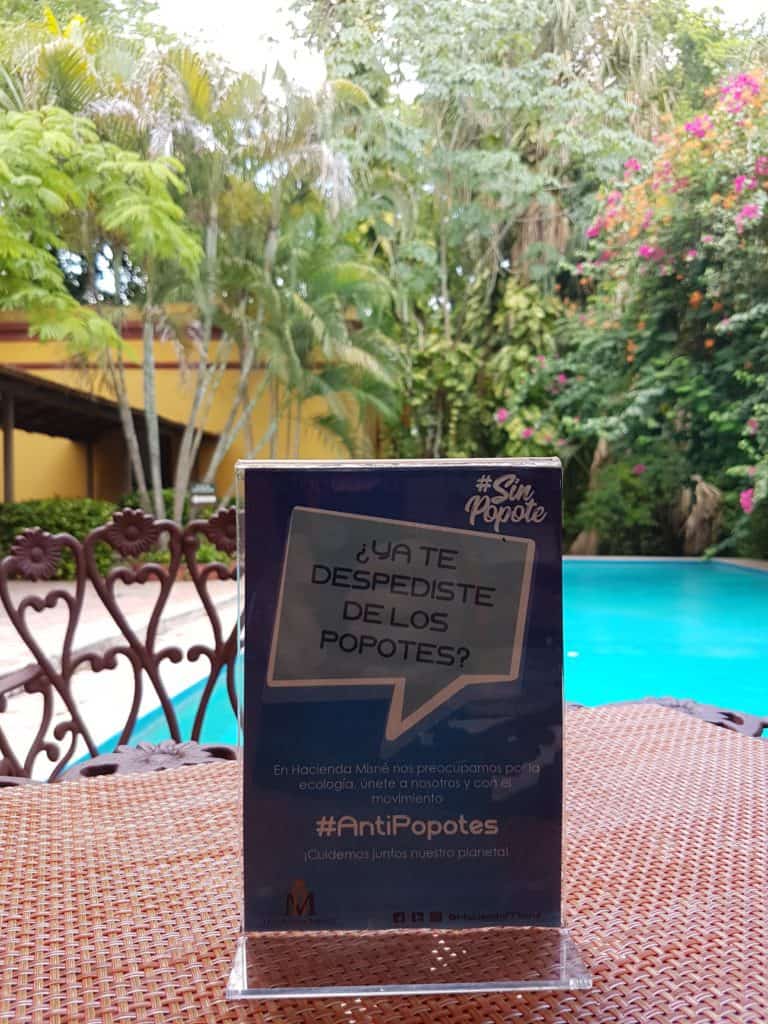
I now carry three reusable straws in my bag at all times. We don’t manage to use them every time. Sometimes drinks come with the straw ready in and we’ve forgotten to say anything and then we feel bad. For more tips and tricks for sustainable travel, read this article.
Life In Merida: Healthy Food Options
If you’re a meat eater and you worry about the welfare of the animals you’re eating then I’m afraid you’re probably on the right track. I’ve heard from more than one professional that livestock transportation in Mexico is terrible and you should only buy TIF certified meat (this means it’ll come from a federally inspected slaughter plant, which still may not meet your expectations but will be better than municipal slaughter plants).
I’m sure many vegetarians and vegans reading this want to scream, ‘stop eating meat then’. Yes. You know what, that’s probably a good idea, but not everyone is ready to do so. This article is devoid of judgement, I’m just trying to provide people with the information I have found. Personally, I know I’m moving towards a diet with fewer animal products in it but I’m nowhere near there yet but I do try to be aware of what I eat and what I provide for my family. Doing so here in Mexico is harder than it was at home for sure.
There is a growing number of vegan and vegetarian restaurants in the city. I’ve recently been tasting them for an article I’m writing for the Yucatan Today and highly recommend a google search to find out what’s what. We have particularly enjoyed Numen, Rincon Vegana, Manik Bal.
Milk: Until recently I was buying regular UHT cartons of milk, however, stories of hormone-induced problems in young girls has prompted us to start looking into our milk choices. Other options include organic milk, which is available in most supermarkets, or the Santa Clara brand, which some say is healthier than other brands.
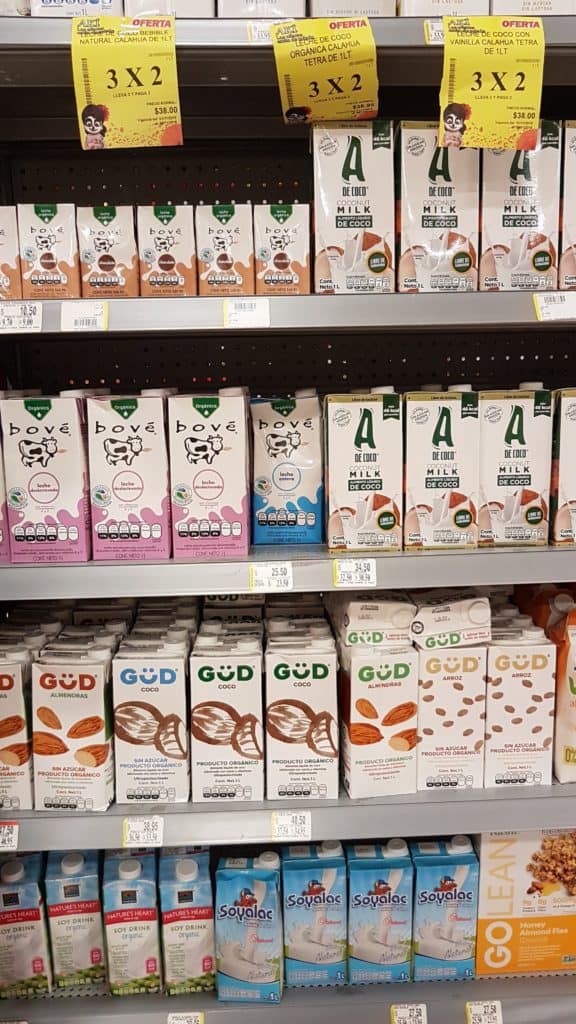
Chicken: I’ve been told that the chicken in the mercados is going to be freshly killed and probably better treated than the chicken available in the supermarkets BUT personally I prefer my meat without a big side-helping of flies. I imagine that the roast-chicken we buy at the side of the road is pretty fresh and was freerange-ish. I can’t say the same for the roast chicken we buy from the supermarket.
Marcelo at the Slow Food Market sells chicken and turkey. His birds are free-range and killed to order and come highly recommended by other residents.
Pork and Lamb: For the best pork and lamb that you know has been treated well and will taste great, I’d always recommend meat from Rancho Haltun Xiki, also sold in the Slow Food Market or via Facebook. The pigs they breed, for example, are pelon pigs – a Yucatan hairless pig, which is perfect for this environment and as such nicely sustainable.
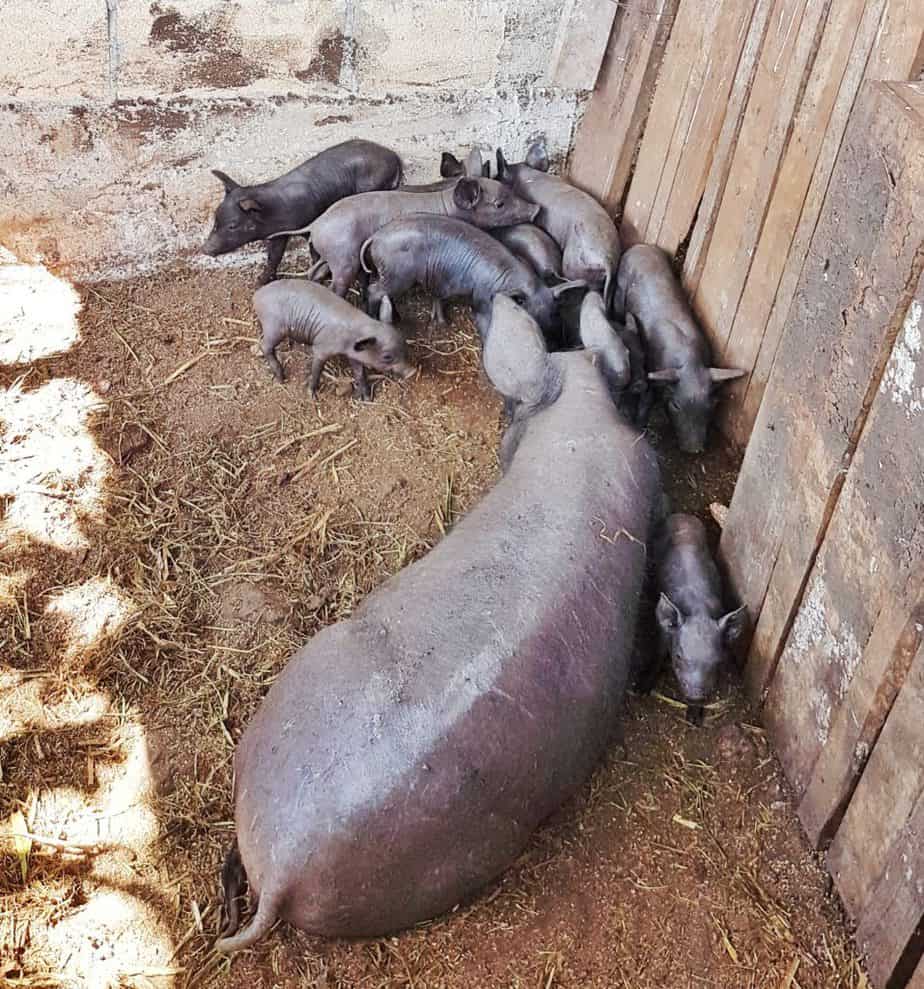
To learn more about their farm and processes, check out this article I wrote about them in the summer of 2018.
The Sausage Lady also found at the Slow Food Market on Saturdays, or in her own shop the rest of the week. The food is slow and clean. According to Marco, part of The Sausage Lady team, every sausage is made with meat, fat and spices and nothing else. All the meat (pork) is certified TIF. The sausages are also organic pelon pig (as above) and are guaranteed to have no hormones or nasties.
Every now and again, we also buy frozen sausages from Costco that have nothing nasty in them because they’re smaller and slightly cheaper and come in enormous packets.
You can also buy pork in the regular markets.
Beef: Beef isn’t really eaten much in the Yucatan and so is generally more expensive than other meats. What is great though is that cattle here seem to be often kept for meat and milk, which isn’t so common the places from which many of us hail. UADY, a Yucatan university, is conducting trials into silvopastoral systems for sustainable livestock production so we may see more sustainable beef in the coming years.
Silvopastoral production essentially increases biodiversity, improves animal welfare whilst still enabling farming to be profitable. It refers to the use of pasture lands that have not been entirely cleared, recognising that shrubs and trees offer edible leaves or fruits as well as shade and that less clearing of land means fewer herbicides and other chemicals used on the land too. Research suggests that silvopastoral lands promote healthier soils with better water retention too.
Eggs: Many fruterias will sell free range eggs, the supermarkets do sell free range eggs too (aire de campo). However, free range, does not mean necessarily hormone free so be aware of what you’re buying. See below for a hormone-free egg supplier (to the best of my knowledge).
Vegetables And Fruit: The Slow Food Market has plenty of organic options but I tend to shop in the local markets for my fruit and vegetables.
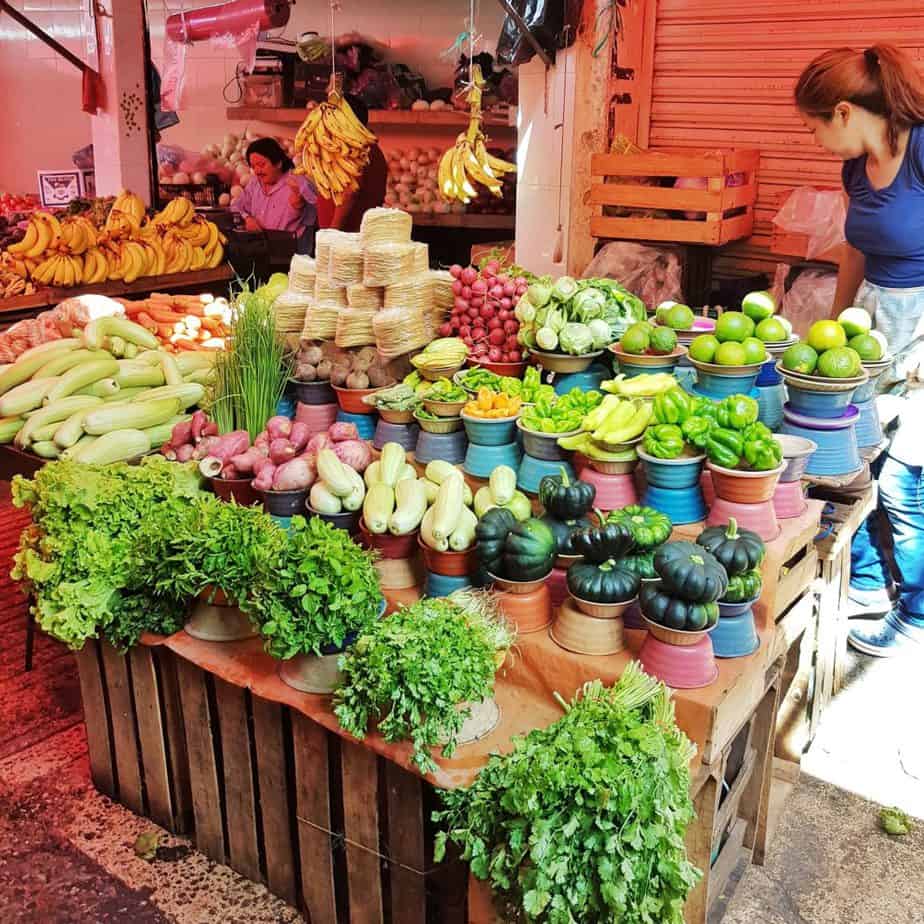
Lucas de Galvez market, Merida
Life In Merida: High Fructose Corn Syrup
My personal food concern is primarily around High Fructose Corn Syrup. As Europeans, it just isn’t something we’re used to seeing in food. We spent the first few months in Mexico obsessively reading every label on food to ensure we weren’t eating it. Now we’re more accustomed to it we are more savvy about knowing where it’s likely to be and how to avoid it – we eat far fewer prepackaged snacks and are very careful with our bread intake. We either buy fresh bread (our favourite options are El Globo, Soriana’s fresh baked bread, or somewhere like SOCO when we’re after bagels or sourdough).
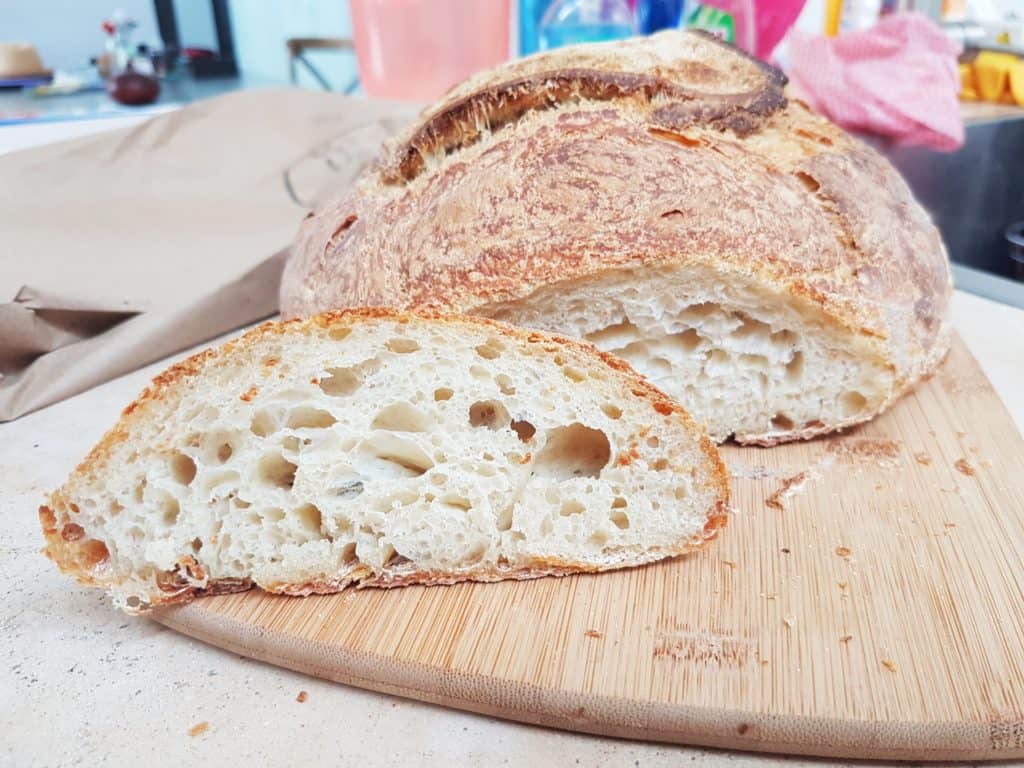
Soco’s sourdough bread
Life In Merida: Health Product Shops
By no means is this a definitive list of health food stores in Merida but it’s a start. If you have one you recommend, feel free to drop me a line and I’ll add it to the list.
Puras Cosas Buenas: Avenida Jose Diaz Bolio 103, Merida
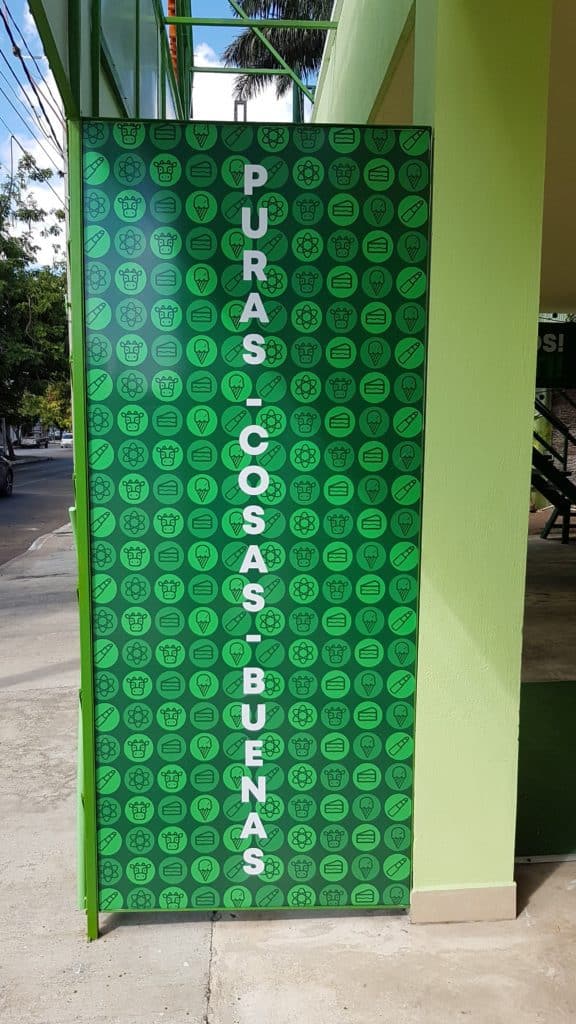
Ya’axtal Montejo: Prolongacion Paseo Montejo 109 (x23 y 25)
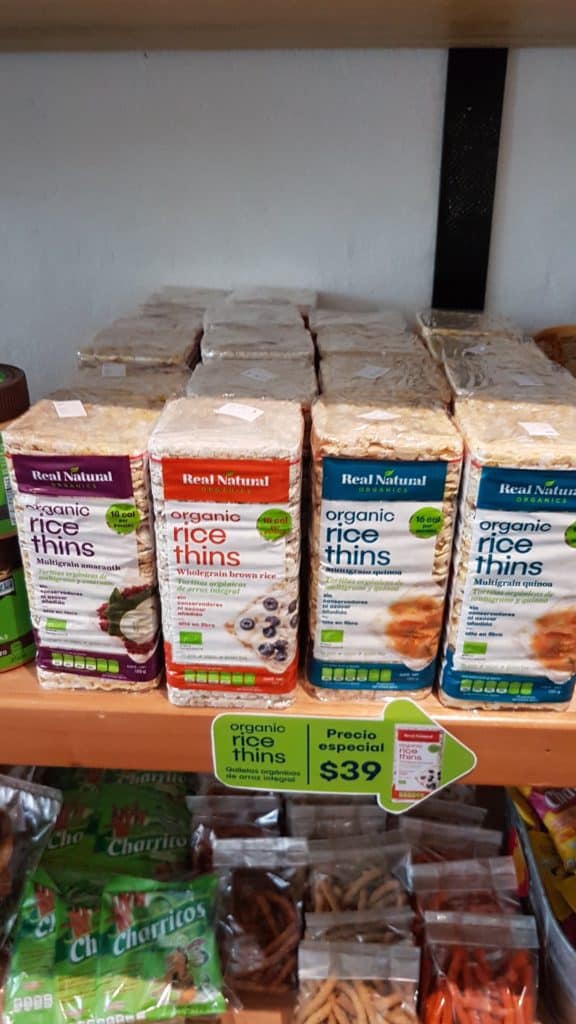
Rice cakes in Yaaxtal
Monique’s Bakery: Calle 79, 191A x36 y 38, Montes De Ame
Green Shine: Calle 21 104B Antiguo Poblado De Chuburna De Hidalgox22 y 20 – refills of cleaning products
Organic Home Delivery: Aromas Organicas Y Naturales Tel: 9994426019. Send a WhatsApp and they send a weekly list of what can be delivered with prices. The delivery options include eggs, chicken and veg, all sourced from local and organic farms.
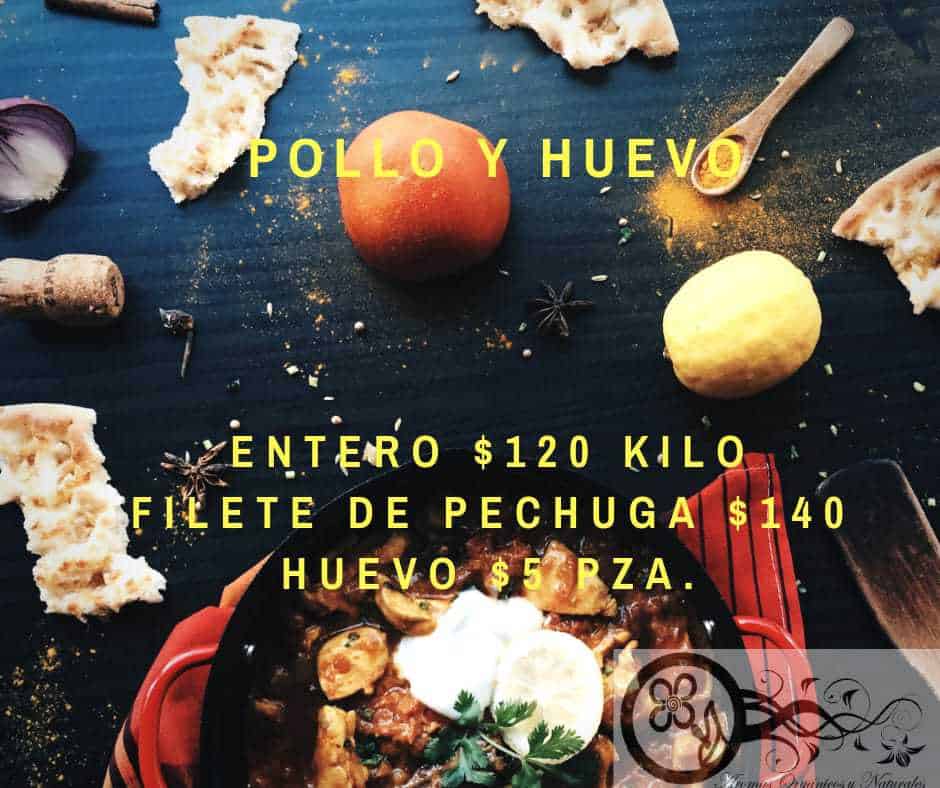
Photos courtesy of Aromas Organicas Y Naturales
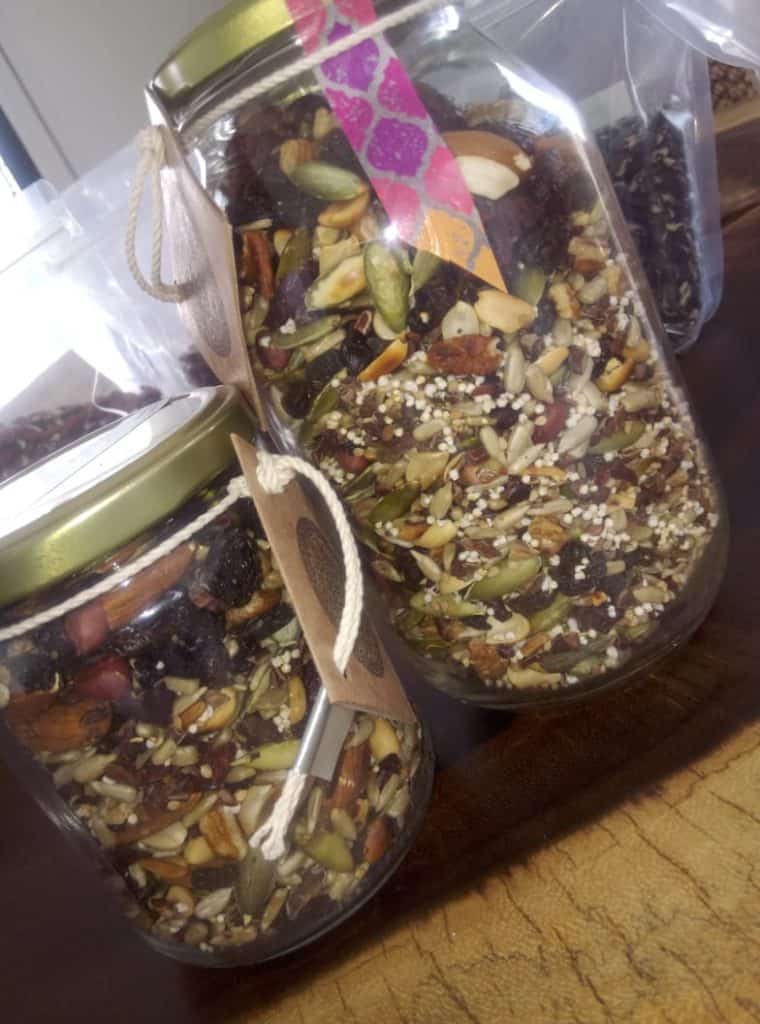
Organic Egg Delivery by Juan: 9992923574
(I haven’t tried either of these delivery services yet but am about to start so I can’t personally vouch for the quality but I have been recommended both).
Life In Merida: Composting
Composting is perfectly possible in Merida. From an open compost in the garden (don’t add meat scraps ever or you’ll have every scavenger in Merida in your garden) to a closed compost bin, I’ve seen many options. It’s a matter of figuring out what works for you. Since we don’t have a garden, we don’t compost (also we have a(n un)healthy fear of composting due to trying hard in London and just winding up with foxes, rats and a mess but I wish we did.
If you want to learn more about composting and living a greener life, you could also visit Parque Aak just outside the city.
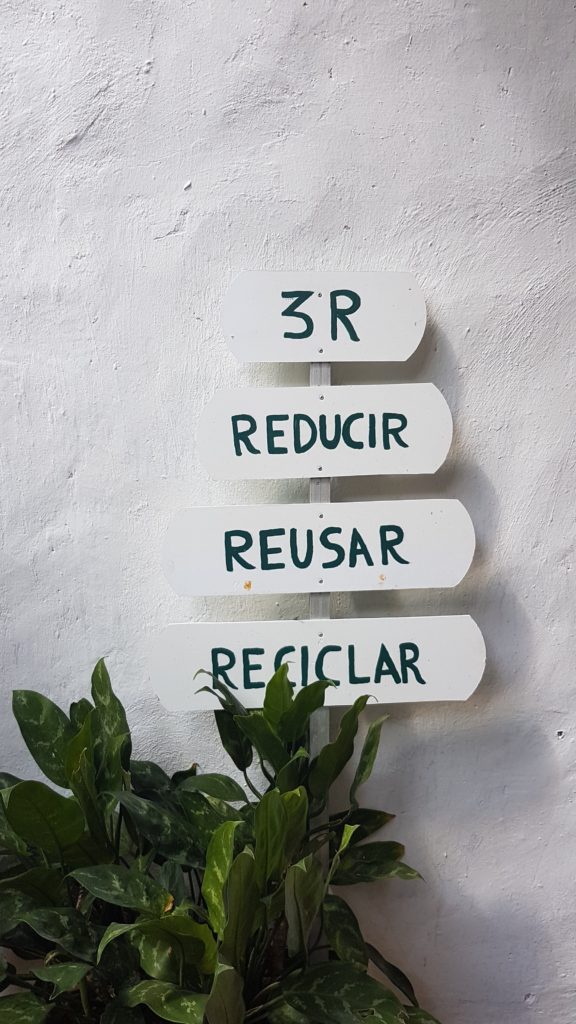
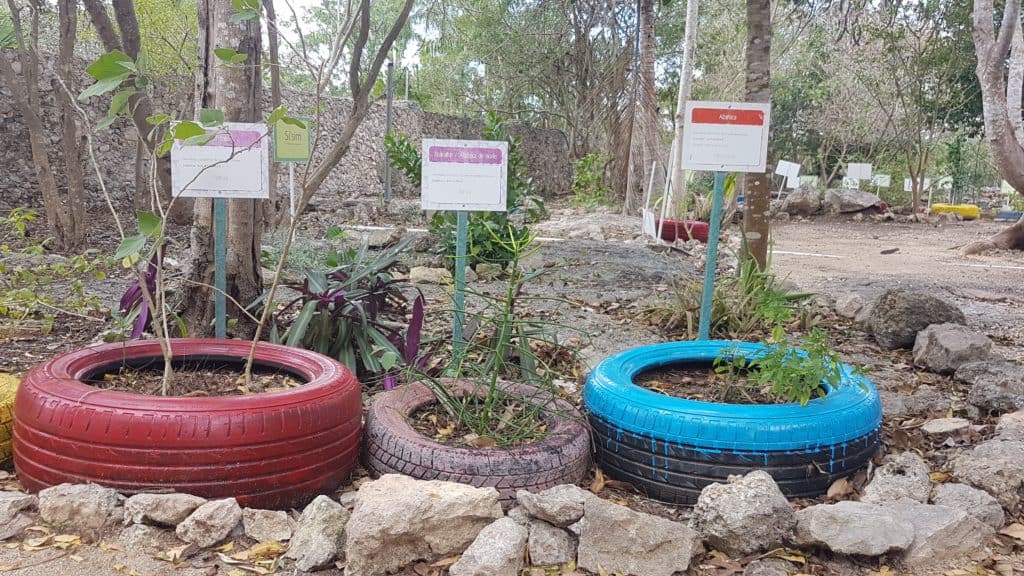
My Life In Merida
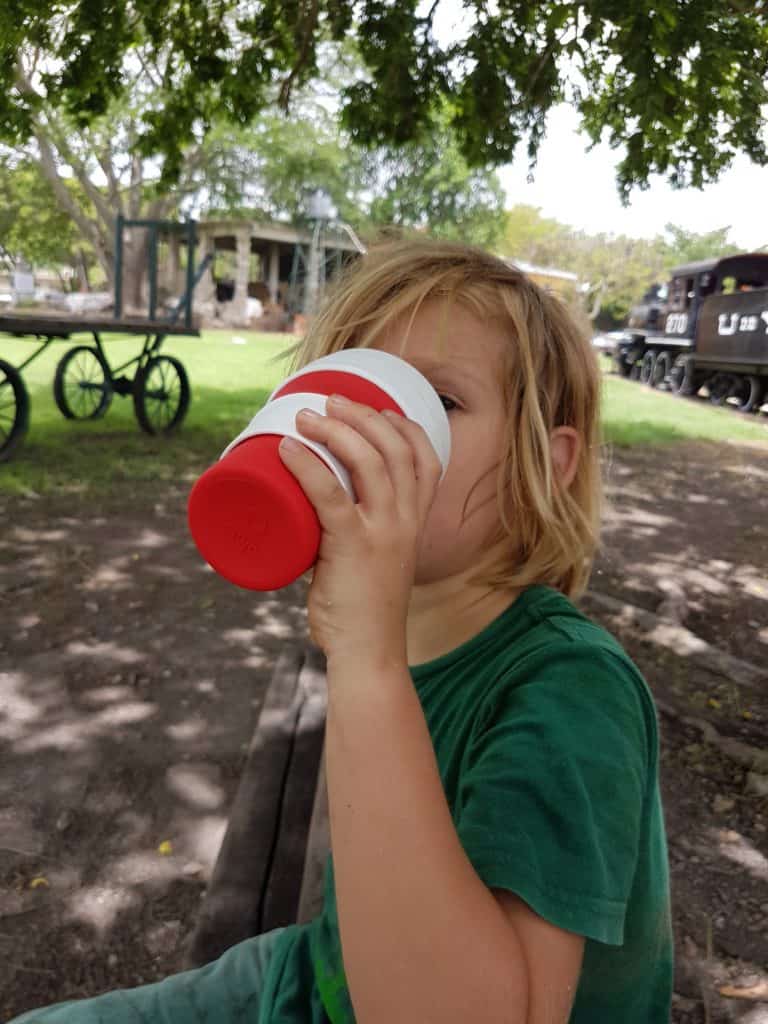
I am not trying to preach. This is a journey for everyone, we all need to find our comfort level when it comes to our ethical balance. My husband and I certainly don’t have the same views on a living a greener, or more sustainable life, there’s constant bickering and give-and-take in our house (he gives the rubbish to the bin, I take it out and try to figure out how to recycle it, mainly!). My kids and I make eco-bricks, we have recycling points in our laundry room: one spot for cans, one for plastic and another general recycling bin. We don’t compost, I sometimes remember to carry a reusable cup (I barely ever get takeaway coffee, which makes it harder to remember), we try to carry water bottles but find it hard to carry enough water to last a family of four so regularly resort to buying drinks when we’re out. I try to remember to ask for drinks with no straw. We don’t eat too much meat. Of what we do eat, we are slowly improving the quality, preferring to get organic lamb from the market but I admit we also buy Costco meat. I don’t tend to visit the health stores regularly but I am about to start using the organic delivery service. We do watch our intake of crappy chemicals, we have always been quite strict about cooking from scratch and not eating too much rubbish but here we find we have to think more than we ever did in the UK because regulations aren’t as strict here as in Europe. We also try to walk as much as possible, even in the middle of summer and handily our house is very breezy so we barely ever need to turn on the aircon.
In May 2019, my family and I spent a weekend in a rural Maya village where the residents are working hard to conserve their environment, having understood that climate change is having a huge, and negative, impact on their traditional way of life.
What about you? How are you managing your environmentally aware life in Merida? Have you found it tough to figure out what to do? What’s your top tip for living a greener life here in Merida?
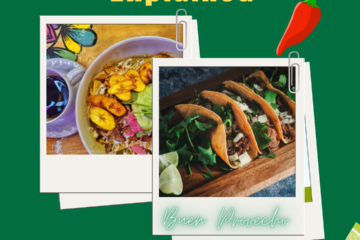

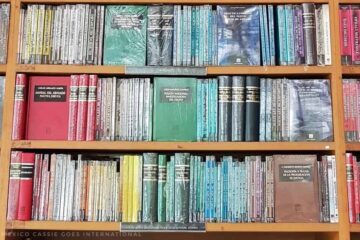
8 Comments
Derrick · 21/11/2018 at 7:46 pm
Excellent post. So far, we walk most places too, separate our trash using blue bags for recycling, skip meat (me and the kids), shop at the mercados for fruits and vegetables and use microdyne, buy some organic things at Costco, Ya-, Slow Food, Superama (delivery ?), etc., and say “sin bolsa” everywhere with plastic bags. I would love solar panels and avoid CFE.
Cassie · 21/11/2018 at 7:59 pm
Thanks Derrick, sounds as if you’re doing pretty well. Solar would be ace, I agree.
Vikki · 22/11/2018 at 8:34 pm
Good article…I moved here 10 years ago from West Coast of Vancouver and was APPALLED at the garbage and lack of recycle…it was like being in my country in the 50’s when people were not educated on this. When I arrived I felt that Merida was like the 50’s but has now transformed into the late 90’s…not bad really. ? One thing we do is take our own containers when we buy our once or twice weekly lunch/dinner from a stand. We also have some really good thermoses that we take when going out. They have a strap for over your shoulder. We even have them for our family and friends that visit or we ask them to bring their own. We do all of the above you have mentioned for a number of years now. You have covered this topic well! ?
Jeffrey · 14/04/2019 at 7:42 pm
I have a lot, as in dozens of fluorescent light bulbs, which have mercury in them. If I was in the USA I’d bring them to home depot for recycling. Does anyone have any idea where I can get them recycled in Merida?
Bettina · 28/05/2019 at 7:59 am
For organic and healthy food products,I recommend Cafe Organico!
Nice article full of valuable information. Thanks for doing all the leg work on this topic.
Cassie · 28/05/2019 at 8:08 am
Great tip, Thanks.
Alyson · 28/05/2019 at 7:22 pm
Good info. I was wondering where I could buy products without packaging. Specifically good quality shampoo/conditioner.
David · 29/05/2019 at 2:49 pm
I recycle almost everything, and try to avoid buying plastic, it is really hard tho. This eco brick i had never heard off. I will start creating one, but do you have more information about Punta Verde or the Hunucma eco school?
Thanks